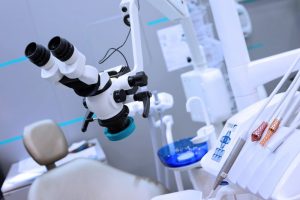 When you think of technological breakthroughs, items like smartphones, watches and hybrid cars may come to mind. But there are just as many amazing discoveries in dental technology that are cutting edge. The future is truly here, boldly pioneering new paths into the world of oral care. Read more as your Simpsonville dentist reveals why some of these new discoveries are important in unimaginable ways.
When you think of technological breakthroughs, items like smartphones, watches and hybrid cars may come to mind. But there are just as many amazing discoveries in dental technology that are cutting edge. The future is truly here, boldly pioneering new paths into the world of oral care. Read more as your Simpsonville dentist reveals why some of these new discoveries are important in unimaginable ways.
10 Huge Discoveries in Dentistry
- Testosterone – Recent studies of monkeys off the coast of Puerto Rico show signs of a correlation between male testosterone production and jawbone integrity. When testosterone levels drop to certain levels the bone structure in the face is weakened, leaving the primates more susceptible to tooth loss, which could further explain why it’s common for older men to suffer the same fate.
- Needleless Dental Anesthetic – One of the more troubling situations for patients to contemplate is the use of needles to administer anesthetic. A recent discovery, though, could spell relief as a study from the University of Sao Paulo found there might be no need for needles when administering anesthetic for dental procedures. The alternative would be to use a small electric current to give the anesthetic, sparing patients any added anxiety.
- Bioactive Composite Fillings – Engineers at Oregon State University have discovered the ability of bioactive glass to extend the lifespan of composite tooth fillings. Normally made from inert glass fillers mixed with polymers, current composites have a lifespan of roughly six years. The new bioactive fillers are expected to last longer because the material is much harder and resistant to bacteria decay.
- Gum Disease May Cause a Form of Cancer – Researchers from the University of Louisville School of Dentistry have found a possible relationship between a form of gingivitis (gum disease) and esophageal cancer. The studies show that untreated gum disease can infect the esophagus and eventually foster an environment conducive to cancer.
- Multiple Fillings Could Cause Toxic Mercury Levels – Researchers at the University of Georgia’s College of Public Health have found a link between increased mercury levels in blood and dental fillings, which can be toxic and cause brain, heart, lung and immune system issues.
- New Way to Treat Harmful Bacteria – Not all bacteria are bad. Some can be used for your benefit, which explains why University of Florida researchers have identified a form of the Streptococcus (A12) as a super bacterium, which could be used as a supplement or probiotic to help fight off cavities.
- Chemicals in Plastic Bottles are Harmful – Your child’s teeth may be secretly attacked by chemicals found in plastic bottles and fungicides, that weaken their teeth by disrupting hormones that stimulate the growth of dental enamel, according to studies presented by the European Congress of Endocrinology.
- Mouth Breathing Can Be Harmful – Recent studies conducted by the University of Otago found that mouth-breathing while sleeping can contribute to tooth decay because it dries saliva, which hinders the mouth’s natural ability to bathe itself.
- Super Saliva – Researchers have isolated an enzyme from bacteria present in human saliva that has potential as a therapy for celiac disease, an autoimmune disease that causes severe digestive and health problems for sufferers who consume gluten.
- An Alternative to Drilling – According to a Creighton University School of Dentistry professor, tooth drilling may possibly be reduced thanks to a new liquid that can be applied prior to dental X-ray, that will show whether a tooth is in a pre-cavity or cavitated stage. If the tooth is not cavitated, then it will allow the dentist to use a less invasive method of applying a recently developed topical product to stop the decay.
Amazing Discoveries Still Depend on Basic Dental Care
These amazing discoveries provide hope and excitement for the future, but your Simpsonville cosmetic dentist wants you to remember the basics as the foundation of your dental care. They are brushing and flossing at least twice daily, and maintaining regular six-month visits for cleaning and examination.
About the Author
With over 30 years of experience in the world of dentistry, Dr. Darryl Halbert graduated from Clemson University in 1983, and then went on to earn his Doctorate of Dental Medicine at the Medical University of South Carolina in 1987. He practices at Tylan Creek Family Dentistry in Simpsonville and can be reached for more information through his website.
